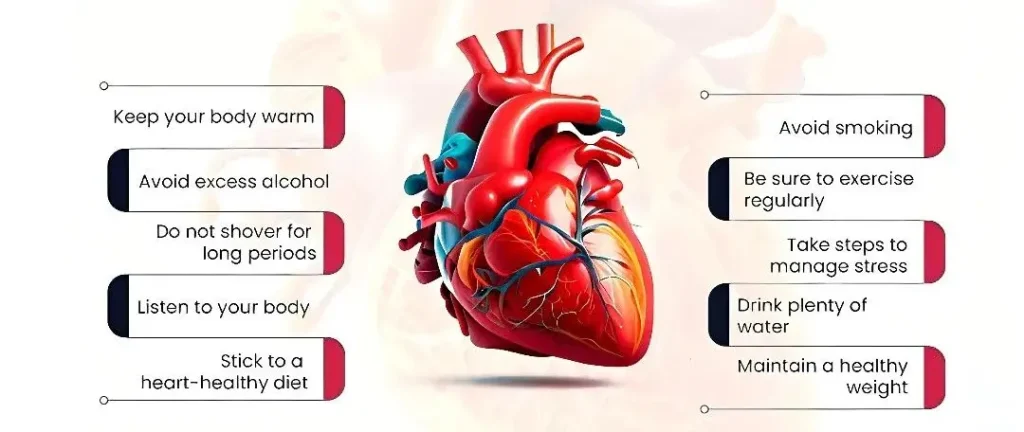
Our heart is like a finely tuned drum, beating with a steady, rhythmic pulse to circulate blood throughout the body. But sometimes, this rhythm can become irregular, too fast, or chaotic. This condition is called Atrial Fibrillation, commonly known as AFib.
Atrial fibrillation is a type of heart rhythm disorder where the heart beats irregularly and often too quickly, which can lead to serious complications over time. If you or someone you know has been told they have an “irregular heartbeat,” it might be AFib.
Understanding what AFib is, why it happens, and how it can be managed is crucial — especially since it’s more common than many realize.
What is Atrial Fibrillation?
Let’s start with the basics. Your heart has four chambers: two upper chambers called atria and two lower chambers called ventricles. Normally, the heart’s electrical system sends signals that maintain a steady heartbeat of about 60 to 100 beats per minute.
In atrial fibrillation, the atria beat very quickly and irregularly. Instead of a smooth, steady beat, the heart flutters or quivers. This disrupts the heart’s ability to pump blood efficiently.
Some people feel this fluttering or rapid heartbeat, while others may not notice any symptoms at all. However, even without obvious signs, AFib can increase the risk of serious health problems.
Why is Atrial Fibrillation a Concern?
When the heart doesn’t pump efficiently, blood can pool in its chambers, especially in the atria. This pooled blood may form clots, which can travel to the brain and cause a stroke.
AFib also forces the heart to work harder, which over time can lead to heart failure — a serious condition where the heart can no longer supply enough blood to meet the body’s needs.
This is why early diagnosis and treatment of AFib are so important.
Symptoms of Atrial Fibrillation
Some people with atrial fibrillation may not notice any symptoms and remain unaware of the condition. However, others might experience one or more of the following:
- Rapid or fluttering heartbeat
- Weakness or fatigue
- Dizziness or lightheadedness
- Shortness of breath
- Chest discomfort
- General feelings of unease or anxiety
These symptoms can be intermittent — lasting from just a few minutes to several hours, and may come and go unpredictably.
Common Symptoms of Atrial Fibrillation
Here’s what you might notice if you have AFib:
- Irregular heartbeat: It may feel like your heart is skipping beats or pounding unevenly.
- Palpitations: You could sense your heart beating too hard or out of rhythm.
- Fatigue: You may feel unusually tired, even after light activity.
- Shortness of breath: Especially noticeable during walking or climbing stairs.
- Dizziness: Feeling lightheaded or sometimes fainting.
If you experience these symptoms frequently, it’s important to consult a doctor.
What Causes Atrial Fibrillation?
AFib doesn’t always have a clear cause, but certain factors can increase your risk. Common causes and risk factors include:
- High blood pressure: Adds extra strain on your heart.
- Heart disease: Such as valve problems or previous heart attacks.
- Thyroid problems: Especially an overactive thyroid.
- Sleep apnea: Breathing interruptions during sleep.
- Diabetes: Elevated blood sugar can affect heart health.
- Obesity: Excess weight forces your heart to work harder.
- Smoking and alcohol: Particularly heavy drinking.
- Age: Risk increases as you get older.
- Family history: AFib can sometimes run in families.
Sometimes, AFib can even occur in otherwise healthy individuals.
Types of Atrial Fibrillation
Atrial fibrillation comes in different forms, based on how often it occurs and how long it lasts:
- Paroxysmal AFib: Starts suddenly and then stops on its own, usually within a few hours or days.
- Persistent AFib: Lasts more than one week and does not go away without treatment.
- Long-standing Persistent AFib: Continues for over 12 months.
- Permanent AFib: A long-term condition where the heart rhythm cannot be restored to normal.
Your doctor will help determine which type you have and recommend the best treatment plan.
How is Atrial Fibrillation Diagnosed?
If your doctor suspects AFib, they may use several tests to confirm it:
- Electrocardiogram (ECG or EKG): A quick test that records your heart’s electrical activity.
- Holter Monitor: A portable device worn for 24–48 hours to track your heartbeat continuously.
- Echocardiogram: Uses sound waves to create images of your heart.
- Blood Tests: To check for thyroid problems or other conditions.
- Stress Test: Measures how your heart performs during physical activity.
These tests help your doctor diagnose AFib and understand its effects on your heart.
Treatment Options for Atrial Fibrillation
The treatment for atrial fibrillation (AFib) depends on how severe your symptoms are and how long you have had the condition. The main goals of treatment are:
- Control the heart rate to prevent it from beating too fast.
- Restore normal rhythm when possible, to get the heart beating regularly again.
- Prevent blood clots to reduce the risk of stroke.
Medications
Medications are often the first step in managing AFib. Your doctor may prescribe:
- Rate control drugs: These slow down your heart rate (e.g., beta-blockers).
- Rhythm control drugs: These help restore a normal heartbeat.
- Blood thinners (anticoagulants): These prevent dangerous blood clots and reduce stroke risk (e.g., warfarin, apixaban).
It’s important to take your medicines exactly as prescribed and attend regular follow-ups.
Electrical Cardio version
This is a quick and safe hospital procedure where a controlled electric shock is delivered to your heart to reset it back to a normal rhythm. It is closely monitored by medical staff.
Catheter Ablation
If medications don’t work or cause side effects, catheter ablation may be recommended. In this procedure, a thin wire is threaded through a blood vessel to your heart, where heat or cold energy is used to destroy small areas causing the irregular heartbeat.
Pacemaker
Sometimes, after treatment, your heart may beat too slowly or you might have other heart issues. A pacemaker—a small device implanted under the skin—can help regulate your heartbeat and keep it steady.
Lifestyle Changes That Can Help
Along with medical treatments, healthy lifestyle habits can improve your heart health and ease symptoms:
Eat heart-friendly foods: Focus on fruits, vegetables, and reduce salt intake.
Limit alcohol and caffeine: These may trigger AFib in some people.
Quit smoking: Smoking harms your heart and blood vessels.
Manage stress: Practice relaxation techniques like deep breathing, meditation, or yoga.
Exercise regularly: Gentle activities like walking or light workouts are beneficial.
Get quality sleep: Treat conditions like sleep apnea if you have them.
Small changes add up to big benefits!
Can Atrial Fibrillation Be Cured?
While AFib can often be managed well, and symptoms greatly reduced, a complete cure isn’t always possible. Some people do return to a normal rhythm with treatment, while others may live with AFib but feel better and lower their risk of complications. Early diagnosis, consistent treatment, and a healthy lifestyle are key to success.
Living with Atrial Fibrillation
Living with AFib can feel overwhelming, but with proper care most people lead active, fulfilling lives. If you have AFib:
- Take your medications regularly.
- Keep up with doctor appointments.
- Report any new or worsening symptoms to your doctor.
- Follow a heart-healthy lifestyle.
When to See a Doctor
If you notice your heart beating irregularly or too fast, or if you experience dizziness or fainting, seek medical help immediately. If you already have AFib and your symptoms worsen, don’t delay in getting care.
Remember: the sooner AFib is treated, the better the outcome.
Conclusion
Atrial fibrillation is a common but serious heart condition. While it may sound frightening, modern medicine offers many effective treatments. By understanding AFib, recognizing symptoms, and following your treatment plan, you can take control of your heart health.
If you or a loved one has been diagnosed, stay calm—most people with AFib enjoy healthy, active lives with the right support and care.


